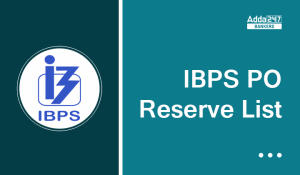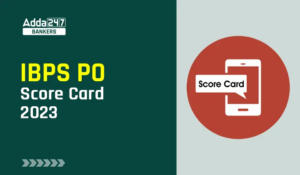On request of many of aspirants , Gaurav (The Flash) has shared his strategy , hard work ,study material and important links which is required to crack the exam of RBI officer Grade-B also known as dream job of a banking aspirant.
Believe: “If not us, who? If not now, when?”
Believe: “If not us, who? If not now, when?”
What he has to say :- As most of you know about RBI so I don’t think I need to tell you about the level of exam but it’s not unbreakable. Every exam has its own pattern and standard and need a different strategy and work. Aspirant just need perfect strategy (smart work) practice (hard work) and stress free mind to crack present competitive exam standard.The aspirants who cracked RBI Grade B also the aspirant like him things which make them different is their determination, regularity and their smart work. Today’s competition requirement is not only hard work but it need smart work also. So now let me tell you about the structure of exam, and some tips (strategy and material). (Strategy and material also will be helpful in other exams having same structure and syllabus I.e. NABARD Officer Grade A & B)
RBI Officer Grade B exam has 3 phase in exam
- Phase-1 (Preliminary Test)-Objective type
- Phase-2(mains)-Objective and Descriptive (English only)
- Phase-3 Interview
Phase-1 (Preliminary Test)-Objective type:-
This is the first phase of RBI Officer Grade B exam it is just qualification purpose only, Marks secured by you in this phase will not be count to make final merit list so you just need to cross this hurdle. This exam is same as other banking exam it has QA, Reasoning, English and GA with banking awareness.Having sectional cut-off and also the overall cut-off But wait… its RBI it should be different from others isn’t it? so they change the weightage of question asked in each sections. So it need different strategy than other banking exams.
This is the first phase of RBI Officer Grade B exam it is just qualification purpose only, Marks secured by you in this phase will not be count to make final merit list so you just need to cross this hurdle. This exam is same as other banking exam it has QA, Reasoning, English and GA with banking awareness.Having sectional cut-off and also the overall cut-off But wait… its RBI it should be different from others isn’t it? so they change the weightage of question asked in each sections. So it need different strategy than other banking exams.
Now let’s discuss each section independently (also important for other banking Exams)
This section is the most important and most scoring section of this exam if you score 50+ in this section then you just need to clear only sectional cut-off of other sections.so prepare it as primary and jackpot weapon. Topics which mostly asked in this sections are belong to RBI News, Banking news and banking terms, Govt. schemes, current Affairs (of 6 month is enough) Economy, finance news, static Gk etc. Ok now let me tell you my strategy to score high in GA and what to read where to prepare as I scored 70.50 in this section only of RBI grade B Exam.
First thing that I need to tell you GA is not the subject that you can prepare in a day or in a week. In this subject you need to do daily work.
- Read “The Hindu” or “The Indian express “etc. newspaper daily
- Read any Economic news paper for economic and finance news
- Read and note down current affairs and static GK
- Read important latest circulars of RBI from its official site
Where to read:-
1.Current Affairs:-BA’s daily GK Update, The Hindu review weekly Tonics and Quizzes,specially The Hindu Quiz and revision classes are beneficial.
2.Economic & finance news- online news paper (Economic Times, business Line) or blogs.
3.The Hindu- you can read it from official site or App or you can prefer BA’s monthly The
Hindu Review
4.Static GK- BA’s static Sections
5.Govt. Schemes- Google it
6.India year book
7.BA’s monthly magazine
Tip: – Note Down daily GK updates from BA, newspapers, economic news in your copy and revise 7 days news on Sunday and also do quizzes based on GA daily.
Quantitative Aptitude:
In most of banking exams this section is having 40-50 questions but In RBI Grade B exam this section is having 30 questions. This section could be nightmare of some aspirants but I think you don’t need to afraid from it. Regular practice of this subject can make you master in it. (#Personal Experience). There is a line said for this subject “Jitna Pen Ghisoge Utna Dimag Chalega”. Means more practice can make your mind to face any type of problem. The questions in this section can be asked in same as other banking exams and also in same pattern but important thing is you first need to attempt those which are less calculative and took less time as we know Banking exam is the Game of Time and Accuracy.
Simplification/approximation, Quadratic equations, Series, Data interpretation, Misc. (profit loss,SI-CI, boat-stream, train, time distance, time-work, mixture-allegation etc.)
Tip: – If you are good in it then try to score much by attempting more questions in your fix time for this section and if you’re not good in this subject just try to clear cut-off and score in other subject.
Where to read: – Practice book on quicker math by K.kundan, fast track arithmetic by Rajesh Verma ,Bankersadda’s Quizzes and study notes for latest standard of problems
Reasoning:-
This section has 60 questions for 60 marks and this section is also quite scoring only thing you need to do is practice and understanding of language of question. In today’s competition they tried to put question which may eat your time as I said banking exams are the game of time and accuracy. By attempting less time taking questions first you can attempt and score more in this section. Practice to selection of questions in speed-test or in your Practice. As it has 60 marks try to score more to cross over all cut-off. Inequality, coding decoding, syllogism, input-output, misc. (age, direction, ranking, relations etc.), puzzles, sitting arrangement, analytical reasoning
Where to read: – BA’s daily quizzes, do puzzles from other sites too for understanding latest standard, and choose any book for concepts and understanding of other topics my recommendation -Indu sharma or R.S. Aggarwal or MK Pandey
Tip: -Prepare all topics even statement assumptions etc. sometimes you may see these questions so “Prepare for worst to give your Best”
English:-
English is also having 30 questions and 30 marks in this exam sometime this section is game changer in other banking exams but not in RBI. It does not mean you should take it lightly remember you have to clear sectional cut-off too. Pattern and questions will be ask same as other banking exams.
Cloze test, Passage (antonyms and synonyms only), fillers, Grammar error, Para jumble, Passage questions.
Tip: – make your habit to read Any English news-paper (The Hindu and The Indian express are best), English magazines, and novels. Learn at least 10-15 new words, writing articles and then check grammatical errors, If you are good in it then try to score much by attempting more questions in your fix time for this section and if you’re not good in this subject just try to clear cut-off and score in other subject.
Where to read: – make your habit to read Any English news-paper (The Hindu and The Indian express are best), English magazines, and novels. Learn at least 10-15 new words, writing articles and then check grammatical errors, Objective General English by-SP Bakshi (for grammar rules and concepts), BA’s passages and error, filler quizzes and note down daily wordlist. Just google “GMAT reading comprehension” or CAT reading comprehension you’ll come across plenty of sites providing mock questions.
Phase-2 (Mains):-
Phase 2 of RBI officer Grade B exam is important phase and its marks will be added in making of final merit list. It need subject knowledge only though RBI Officer Grade B exam invites applications from different faculty background candidates and syllabus is only indicative not exhaustive so If you have just started for RBI Grade B exam then don’t worry 4 month is enough time to crack this exam.(both Phase1 & Phase2).
From 2015’s RBI officer Grade B notification the pattern of exam has been changed. All papers are online and paper 1 and paper 3 is in objective type and paper 2 English is descriptive type and answers to be typed with the help of keyboard.
Paper-I: Economic and Social Issues:-
As I said earlier the syllabus of this exam is only indicative not exhaustive .so you just need to have basic and subject knowledge of topics you don’t need to do Ph.D. in topics, basic knowledge and understanding of topics is enough. Some aspirants opting for academically heavy books like Dutt and sundaram for Economy .remember Guys you don’t have to read the books you have to read the topics. So always keep the syllabus in front of you and preparation should be topic wise not book wise. The material which I have read and I am going to recommend you is might be looking lengthy but believe me it will hardly take 20-25 days if you read it topic wise according to syllabus.
Here I’m dividing strategy in two stages. I think most of us didn’t read basic books so first we need to drink some bournvita and eat some almond in our starter before moving to main course.
Here I’m dividing strategy in two stages. I think most of us didn’t read basic books so first we need to drink some bournvita and eat some almond in our starter before moving to main course.
Foundation:
1.Basic understanding: sectors of economy, concept of money and development To get the Basic idea about GDP, GNP, Public Debt, IIP, FII etc. -NCERT Class10(understanding economic development)
2.Now Understand: Socialism, Communism, Capitalism, LPG (liberalisation, globalisation, and privatisation), and Green Revolution etc. NCERT: Class11 (Indian economic development)
3.Finally: microeconomic concepts of supply and demand, elasticity etc. (without going to in mathematical details) NCERTClass12: Macro Economy : money and banking, role of RBI
etc. (without going to in mathematical details)
Main Course:
After you’re done with basic foundation, time for main course doing selective topic wise study from IGNOU B.A. booklets and Indian Economy by Ramesh Singh .these books are written in very well structure and simple language any one even non-economic background guy can understand their language easily.
1.For Economic Reforms in India – Industrial and Labour Policy – Monetary and Fiscal Policy Privatisation – Role of Economic Planning. Globalization – Opening up of the Indian Economy ,Balance of Payments, Export Import Policy.
2.B.A. (Economics) Booklets: They will help you cover various topics such as SEBI, Indian Economy Balance of Payments, and Export Import Policy
3.For International Economic Institutions – IMF and World Bank WTO-read IGNOU BA books or Google it and read from official sites or Use Gaurav Aggarwal’s (UPSC-2013 topper) economics notes.
If still any topic remain use Wikipedia, google books etc.
The Flash Recommendation
- NCERT Economics Books CLASS 10,11 & 12 (can be downloaded free from official sites and from My Drive link)
- IGNOU BA Economics Booklet (can be downloaded free from internet and my drive Link)
- GAURAV Aggarwal’s notes and Official sites study of RBI and International Economic Institutions (You can google it or download it from my drive link)
- Mrunal’s Economy and economic survey (latest) videos –Highly Recommended.
- Use TMH GS manual for practicing economy MCQ’s or economics MCQ’s of UPSC Pre standard for worst case
- Magazines-RBI Bulletins and YOJNA
- News Papers- The Hindu & Mint or Economic Times
- India Year Book
- The Flash’s Articles
PS: -This material is standard (NCERT & IGNOU) you can get every piece of knowledge required for the exam. Don’t go for reference books (provided in RBI Syllabus) they are academic books have very depth knowledge. You just need to clear an exam not to do Ph.D. in the subject so these heavy books should be avoided and remember just do topic wise study. And also don’t buy any readymade book for RBI Grade B preparation it’s just waste of your money. Read topics the best you can get from
Paper III – Finance and Management:
I had taken Finance and management in paper III optional subject. The main reason behind it overlapping of topics and in above sources (Paper-1 Recommendations) you’ll find plenty of material overlapping with Finance, and remaining topics are from current bills, schemes and finance institutions working. So let’s jump directly on management section. Again authentic IGNOU source and management portion is like story book and does not require so much application.
Leadership theories, Formal and informal communication, Theories of motivation, Motivation and morale, For HR topics and recruitment, training, performance appraisal, rewards and incentive Management etc. IGNOU M.A. (Public Administration) course human resource management.
Leadership theories, Formal and informal communication, Theories of motivation, Motivation and morale, For HR topics and recruitment, training, performance appraisal, rewards and incentive Management etc. IGNOU M.A. (Public Administration) course human resource management.
The Flash Recommendation
- Principal of management-PC Tripathi
- IGNOU Booklet-Financial Administration
- Internet Blogs and some Official sites
- YouTube Channels (UnAcademy etc.)
- Mrunal.org ‘s Public Administration section
- Newspaper-The Hindu & Mint or Economic times
- Magazines- RBI Bulletins & YOJNA
- The Flash’s Articles
PS: – I might miss some topics or unavailable in material can be read from various blogs. And you can also prefer Finance and management by Prasanna Chandra
Adda247 is good site and appreciable initiative a by BankersAdda for preparing current affairs and I have watched some videos of finance and banking terms on their YouTube channels. This also can be beneficial and recommended for the preparation.
Paper II –English Writing Skills
In 2015 paper they only asked Essay and precise writing that mean only writing skill English. Though it is a skill test I can’t tell you exact what to prepare for this subject but I can give you tip to prepare for this subject.
- Daily read The Hindu or The Indian Express Editorial Section
- Buy any book which give you understanding of Descriptive paper means how to write essay
- (Effective in less words and less time) my recommendation Descriptive English by S.P Bakshi
- or compulsory English by A.P. Bhardwaj or you can take tips from blogs or YouTube or Toppers
- notes
- Read magazines like YOJNA or any social magazine.
- Read articles and try to write it in your own language
- Practice previous year papers
- Do some typing practice.
Phase-3:- Interview
Read my Interview Experience below :-
I may tell you chapters or pages to read but I want you to do some homework before start preparation.Just download and go through recommended material and put syllabus in front of you then search required topic in the material. Mark it or make your own pdf by assembling all topics. By doing this you’ll always see syllabus first for such big exams and most importantly you’ll understand there is nothing from which you need to afraid of. If you did this your Fear for this exam will be gone. Your full dedication, Smart work and stress free preparation will give you success.
…………………………….ALL THE BEST.……………………………
…………………………….ALL THE BEST.……………………………





 IBPS PO Previous Year Question Papers Wi...
IBPS PO Previous Year Question Papers Wi...
 IBPS PO Reserve List 2023, Check Provisi...
IBPS PO Reserve List 2023, Check Provisi...
 IBPS PO Mains Score Card 2023-24 Out, Di...
IBPS PO Mains Score Card 2023-24 Out, Di...



